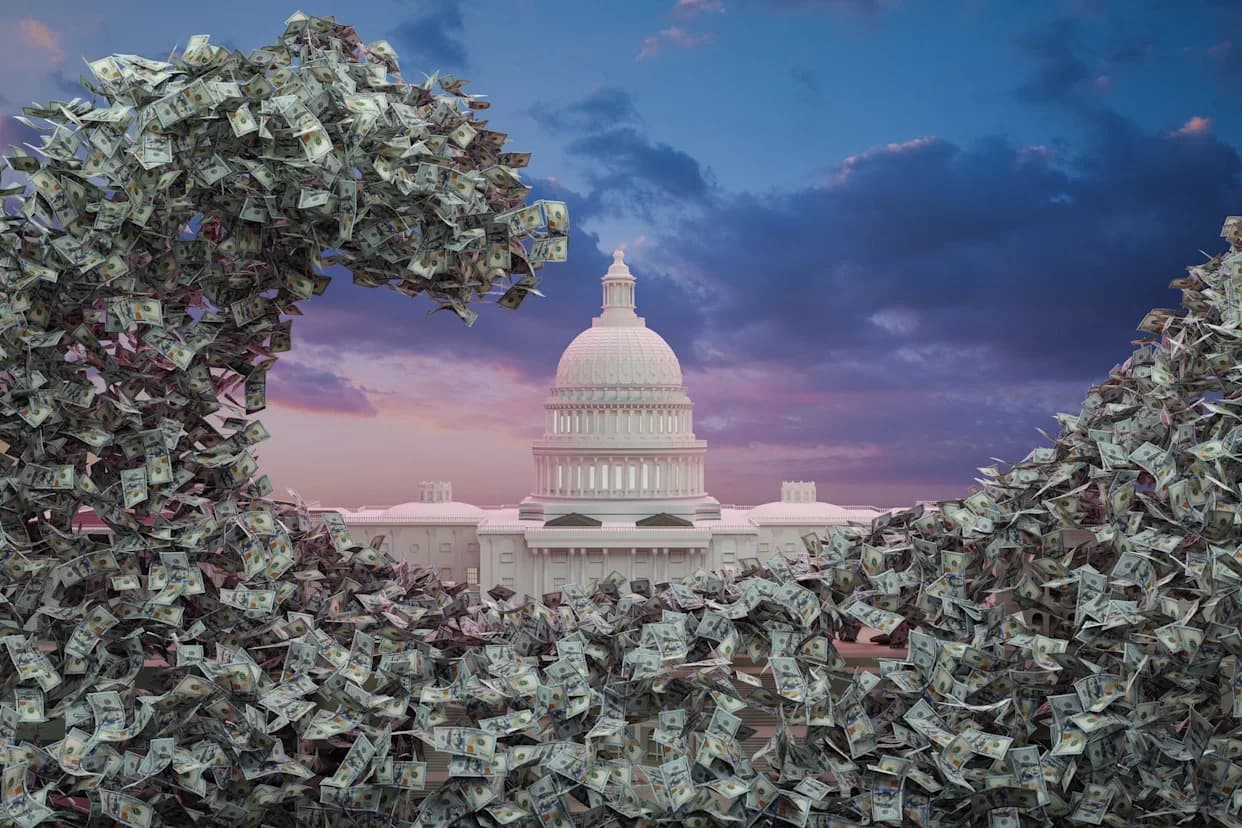Sen. Jon Ossoff has publicly criticized the influence of corporate and billionaire money in politics, calling it a major source of corruption. A review of Federal Election Commission filings shows his campaigns have accepted nearly $500,000 from billionaire donors since 2017, including more than $154,000 this year. While Ossoff touts a large small‑donor base, FEC data show a substantial share of recent funds came from out‑of‑state donors and several high‑capacity contributors linked to major tech firms.
FEC Records: Sen. Jon Ossoff Took Nearly $500K from Billionaires Despite Criticizing Big‑Money Politics

Sen. Jon Ossoff (D‑Ga.) has been an outspoken critic of the role that corporate and billionaire money plays in American politics, calling decisions such as Citizens United a catalyst for what he has described as “corruption on steroids.” Yet a review of Federal Election Commission filings and campaign disclosures shows Ossoff’s campaigns have received nearly half a million dollars from contributors classified as billionaires since 2017, including more than $154,000 reported this year.
Who gave and what it means
More than 70 individuals identified as billionaires have contributed to Ossoff’s federal campaigns. Named contributors include members of the Soros family; tech leaders such as Eric Schmidt and Reid Hoffman; Atlanta Hawks co‑owner and Cox Enterprises heir James Cox‑Chambers; and hedge fund manager Henry Laufer, among others. In addition, watchdog groups report that several of Ossoff’s top individual donors are affiliated with major technology firms, including Google, Apple, Microsoft, Amazon and Meta.
Ossoff has long refused direct corporate PAC money and has associated himself with reform groups that oppose large, opaque political spending. Nonetheless, campaign finance records also show receipts from a range of PACs—including those tied to lawyers and lobbyists, miscellaneous businesses, agribusiness and labor—during the 2023–2024 reporting period.
“We can’t just become mere guardians of the status quo. We have to be about change and reform and money in politics is, like, the root of all of this,” Ossoff said on a national podcast, adding that concentrated wealth enables powerful groups to manipulate elections.
Small donors, out‑of‑state funding and political risk
Ossoff’s campaign emphasizes a robust small‑donor base: following its most recent filing the campaign reported roughly 233,000 donors with an average contribution of about $36. However, FEC data indicate that more than 80% of the funds raised in that reporting period came from out‑of‑state donors. Records also show that a majority of maxed‑out contributors reside in California, New York or the D.C.‑area.
Federal disclosure rules mean that donors whose aggregate contributions fall below $200 are often not itemized in public filings, which can obscure the full composition of small‑donor fundraising. Ossoff is preparing for a competitive re‑election campaign in 2026 in a state that voted for the Republican presidential nominee by a narrow margin in 2024. He first won his Senate seat in 2021 after defeating the incumbent in a close race that required a runoff.
What to watch
Key questions for voters and reporters include how Ossoff reconciles his public stance against large private political donations with the continued acceptance of high‑net‑worth individual contributions, and whether his fundraising profile will become a focal point in his 2026 re‑election campaign. The records reviewed here are limited to reported, itemized contributions and do not include every smaller, undisclosed gift that falls below federal itemization thresholds.
Note: This article is based on publicly available FEC filings and campaign disclosures.
Help us improve.

































